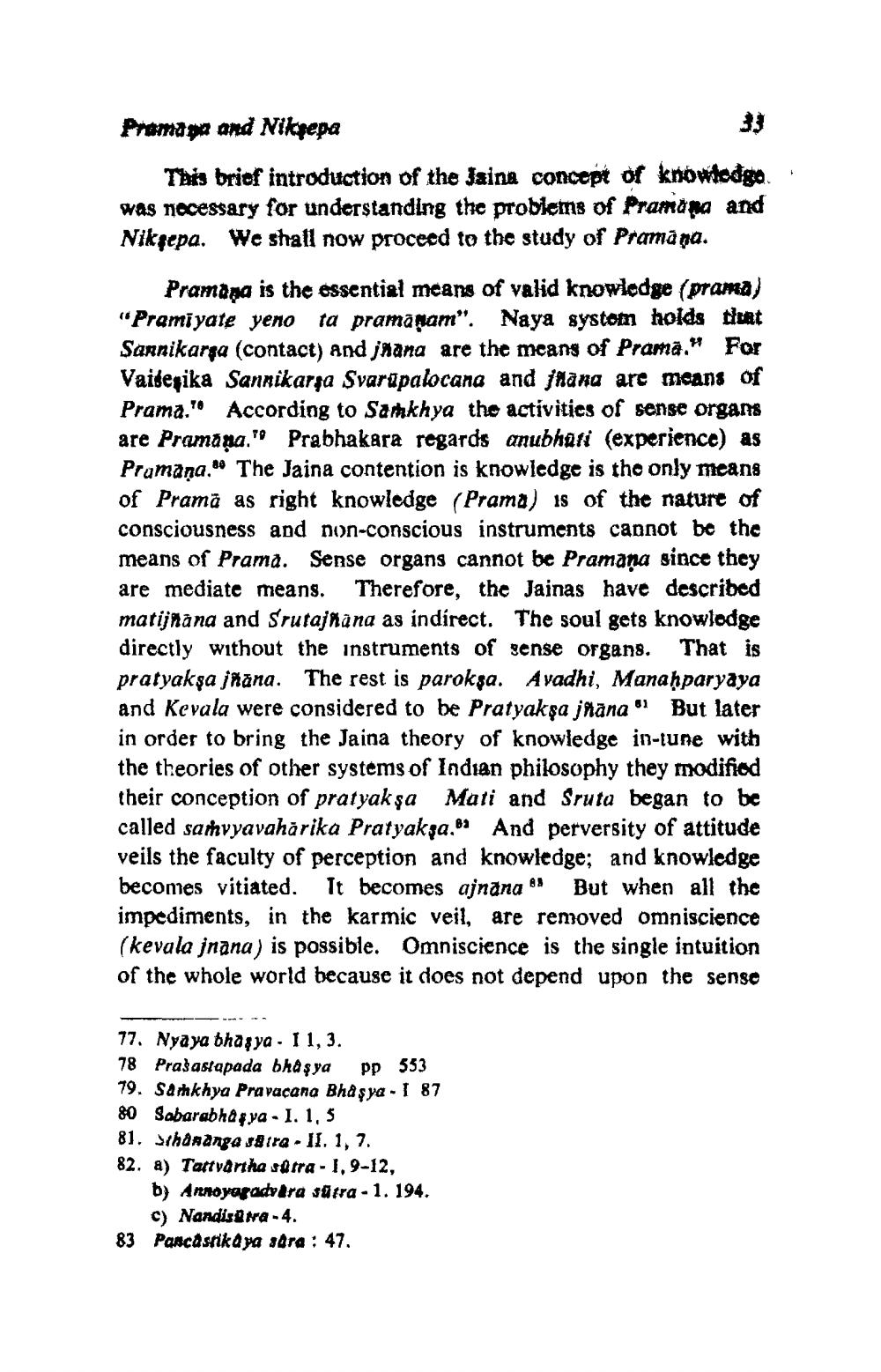________________
Pramo per and Nikpepa
This brief introduction of the Jaina concept of knowledge was nocessary for understanding the problems of Pramana and Nikrepa. We shall now proceed to the study of Pramana.
Pramana is the essential means of valid knowledge (prama) "Pramiyate yeno ta pramanam". Naya systot holds that Sannikarsa (contact) and jnana are the means of Prama. For Vaiderika Sannikarşa Svarüpalocana and jnana are means of Prama." According to Samakhya the activities of sense organs are Pramana." Prabhakara regards anubhari (experience) as Prumana." The Jaina contention is knowledge is the only means of Prama as right knowledge (Prama) is of the nature of consciousness and non-conscious instruments cannot be the means of Prama. Sense organs cannot be Pramana since they are mediate means. Therefore, the Jainas have described matijnana and Srutajnana as indirect. The soul gets knowlodge directly without the instruments of sense organs. That is pratyaksa jnana. The rest is paroksa. Avadhi, Manaḥparyaya and Kevala were considered to be Pratyaksa jnana" But later in order to bring the Jaina theory of knowledge in-tune with the theories of other systems of Indian philosophy they modifiod their conception of pratyakşa Mati and Sruta began to be called samvyavahărika Pratyakşa.6. And perversity of attitude veils the faculty of perception and knowledge; and knowledge becomes vitiated. It becomes ajnana ! But when all the impediments, in the karmic veil, are removed omniscience (kevala jnana) is possible. Omniscience is the single intuition of the whole world because it does not depend upon the sense
77. Nyaya bhasya . 11,3. 78 Prašastapada bha sya pp 333 79. Sankhya Pravacana Bhåşya - I 87 80 Sabarabhagya - I. 1,5 81. thônanga sira - II. 1, 7. 82. a) Tattvartha sotra - 1.9-12,
b) Annoyapadrara sutra - 1. 194.
c) Nandisama-4. 83 Pancastika ya sara: 47.




